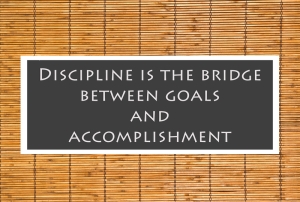 Are you hoping to change your financial habits? There isn’t any one-size-fits-all magic approach, but there are different strategies you can try out until you hit on something that works well for you.
Are you hoping to change your financial habits? There isn’t any one-size-fits-all magic approach, but there are different strategies you can try out until you hit on something that works well for you.
Here are three strategies that can help you change your financial habits. Figure out which is likely to work best for you:
1. Try a Spending Detox
If spending is one of your big problems, you can actually break the habit by going on a spending detox. Try to go a month without spending on anything that isn’t absolutely necessary. You can retrain yourself to dislike spending and prefer keeping your money.
This approach can even work with your long-term and short-term savings goals. Make sure you automatically contribute to retirement savings or to your travel fund during this time, but avoid spending money on unnecessary household goods, gadgets, or other items that do little more than clutter things up.
You might be surprised at how quickly you adjust to the new normal and develop new habits that are less about spending money.
2. Make Small Changes
Taking a drastic step doesn’t work as well for some people. If this describes you, then consider making incremental changes instead of doing something dramatic. This reduces the pain involved, and can help you make forward progress.
It’s a slower approach, but it can help you ease into your new habits. Savings habits are ideal for making small changes. If you want to get to the point where you are setting aside $350 a month toward retirement, you aren’t likely to be able to sustain that change all at once.
Instead, you can start with a smaller amount. Can you set aside $10 a week? This adds up to $40 a month. Look to take that first small step. Once you free up that money and become comfortable, start looking for ways to free up another $10 a week. It takes a little time, but you will eventually reach your goal.
From freeing up money to pay down debt to putting money toward a family vacation, the start-small approach can work well and help you change the way you manage your money.
3. Plan Ahead
One of the best ways to prepare your finances and change your habits is to plan ahead. Get in the habit of checking in with your finances once a week. Set aside time to look ahead to the bills you will need to pay and other financial realities.
When you plan ahead, you will track your spending better, create budgets, and naturally start to change some of your financial habits in a way that can benefit you in the long term. You’ll also end up saving yourself a ton of time and headache in the long run because you won’t need to deal with putting out all the fires either.
Article Source: Miranda Marquit for MoneyNing.com
